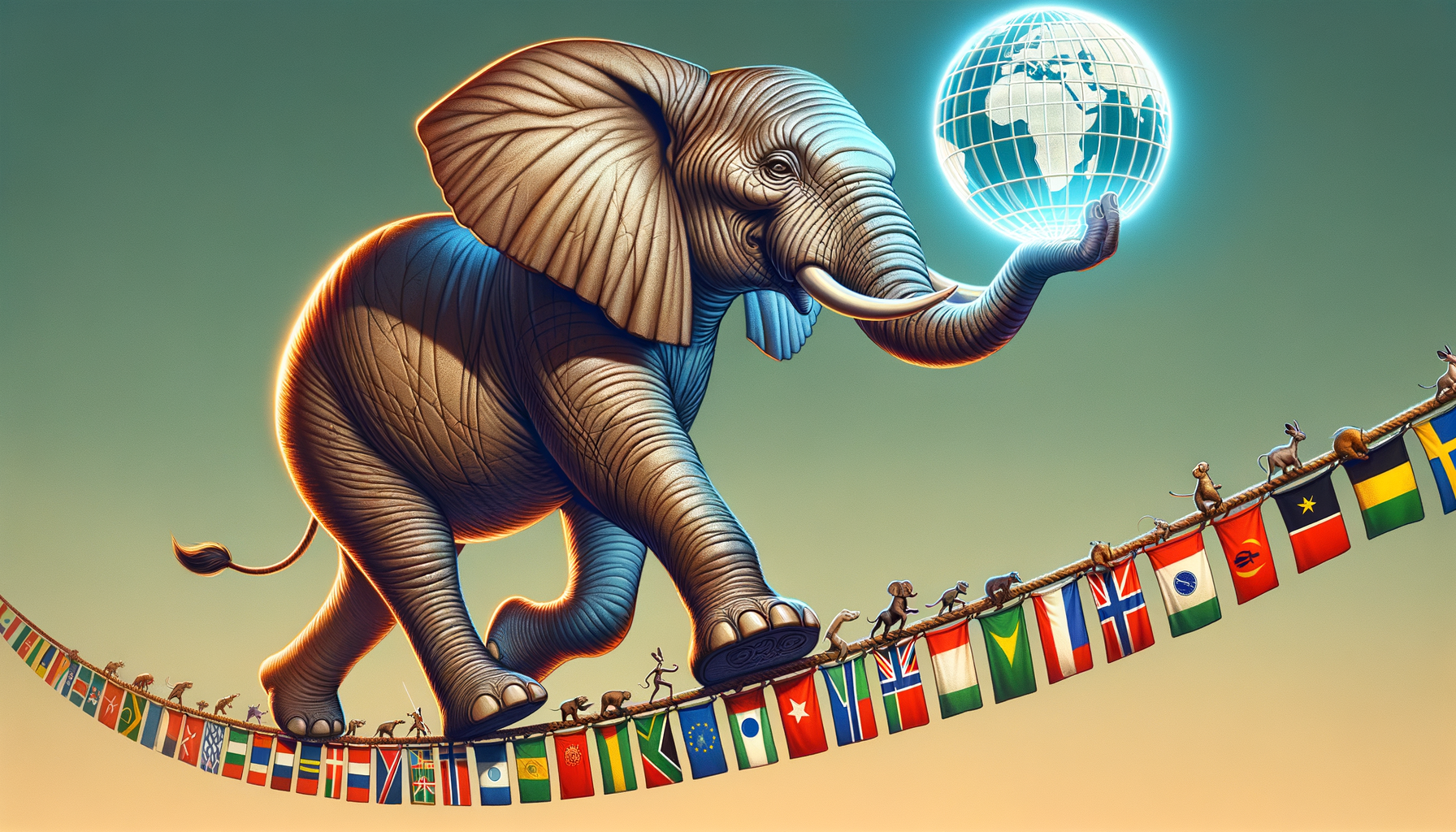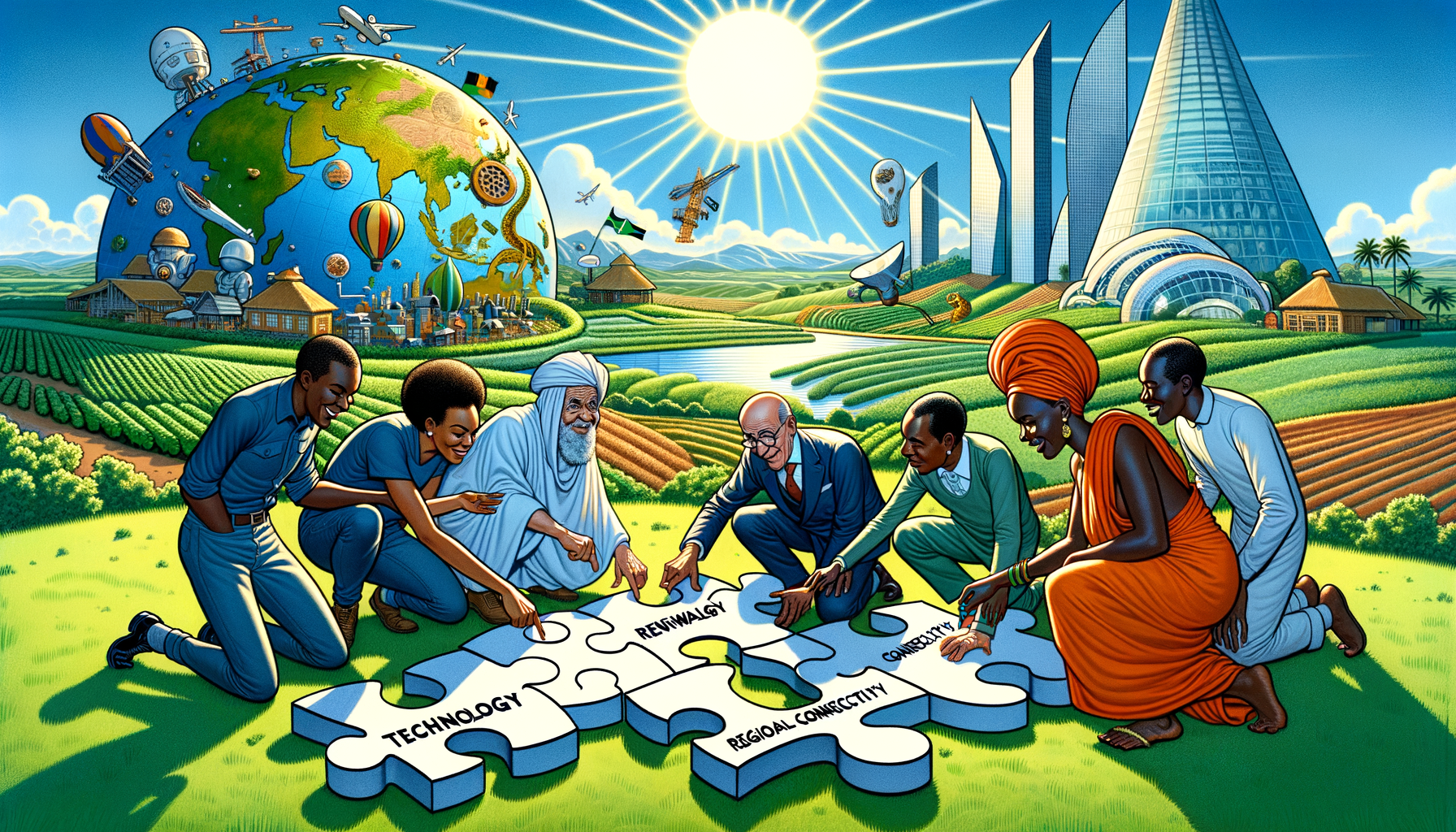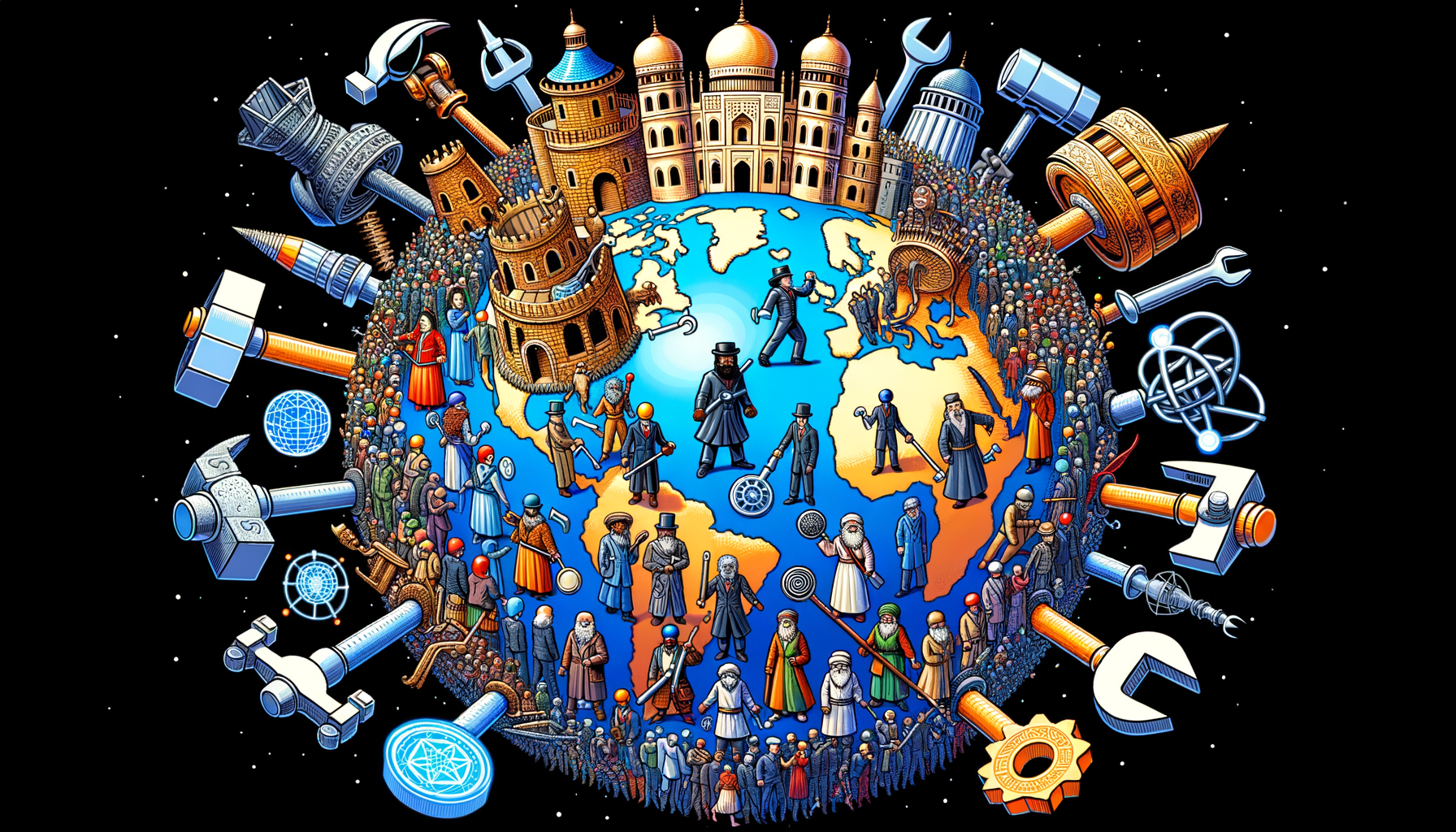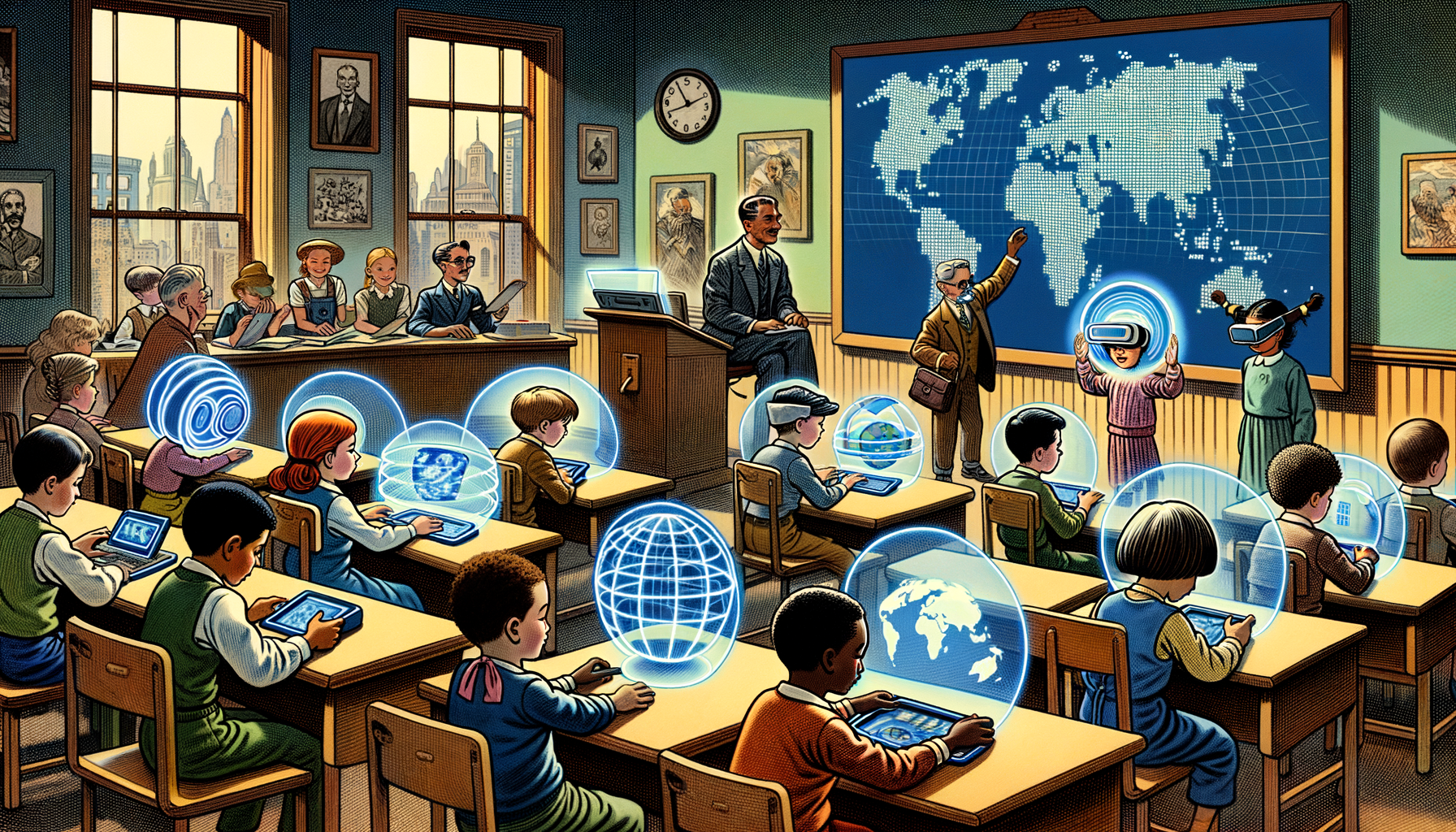AI, Biotech Arms Race: Reshaping Global Power Dynamics
What is the potential for AI and biotechnology to drive a new arms race, and how would this reshape power dynamics among nation-states?
African Futures: Demographics, Resources, and Global Economy Renegotiation
How will African states leverage their demographic and resource advantages to renegotiate their roles in the global economy?
African Prospects: Resource Mastery and Redefined Global Roles
In light of the ongoing shifts in the global economic landscape, how could African countries strategically utilize their demographic and resource advantages not only to diminish their reliance on foreign capital but also to bolster intra-African trade relations, thereby enabling them to renegotiate their positions and roles within the global economy more effectively? This question seeks to explore the multifaceted approaches African states might adopt to leverage their inherent strengths, focusing on enhancing economic self-sufficiency and fostering stronger regional partnerships, which in turn could redefine their economic interactions on a global scale.
Digital Identities, DAOs, and Shifting Global Sovereignty Dynamics
What might be the long-term impact of stateless digital communities on global geopolitical and economic alliances?
Shaping Futures: Education for Technological and Societal Shifts
How might international educational collaboration change in response to the increasing importance of technology in society?
AI, Espionage, and Diplomacy: Shifting Global Power Dynamics
First, consider that as AI reshapes spycraft, how might the role and responsibilities of human operatives within intelligence agencies evolve? Then, with that information and analysis, how will artificial intelligence tools change the balance of power within international intelligence-gathering operations?
Brazil Trade Dynamics: Partnerships, Surpluses, and Sectors
In the last few years, Brazil has been reporting trade surpluses, primarily due to high exports in the manufacturing industry (54 percent of total exports), mining (23 percent) and agricultural products (22 percent). Brazil's main imports are in the manufacturing industry (89 percent of total imports) with fuels and fertilizers comprising 18 percent of total imports. The biggest trade partners are: China (27 percent of total exports and 22 percent of total imports), the United States (11 percent of exports and 19 percent of imports), Argentina (5 percent of exports and 5 percent of imports). Others include: the Netherlands, Canada, Japan, Germany and Spain.
AI Influence on Geopolitics and Conflict Dynamics
In what ways may the integration of AI into forecasting, strategizing, and political decision-making processes impact traditional doctrines of warfare and international relations, and how could this technological infusion reshape the mechanisms of international diplomacy and conflict management, potentially altering the foundational principles and strategies that govern global interactions and disputes?
Nuclear Ascendancy: Reshaping Global Security Dynamics
How might changes in nuclear policy and doctrine, reflecting a re-emergence of nuclear weapons as a central theme in global security discussions, alter the strategic calculus of both nuclear and non-nuclear states, influencing their diplomatic engagements, and how will this shift affect the future of non-proliferation treaties and international arms control agreements, potentially reshaping the landscape of global security and diplomacy?
Mexico Ascendant: Redefining US Trade and Global Manufacturing
What are the broader implications for global supply chain configurations and trade policy as Mexico becomes the primary manufacturing goods supplier to the US?
Indonesia's Election: Regional Shifts and Singapore Ties
What are the potential geopolitical ramifications of the Indonesian elections for alignment or realignment with major global powers and blocs? How would this impact geopolitical relations with Singapore?
Net Zero Impact and Plastic Bans on Restoration
How do current climate policy initiatives address the effects of climate change on developing economies, particularly concerning food security and migration?
Media Multiplicity: Shaping Policy through Diverse Discourse
Considering the influence of media on public opinion and foreign policy in democracies, how can multiperspectival media platforms transform public perceptions and subsequently affect the foreign policy decisions of democratic nations, and in what ways does engagement with a diverse range of perspectives contribute to fostering improved diplomatic relations, especially in the context of longstanding geopolitical conflicts?
Artificial Intelligence: Economic Leverage and Asset Stability
Given the potential economic impact of AI, what strategies could governments employ to harness this technology without exacerbating inequality or destabilizing existing industries?
Trump Presidency: Economic Disruption and Geopolitical Shifting
Observing the U.S. Presidential Election is engaging and entertaining due to its dynamic and captivating nature. However, of greater significance is the potential impact of a Trump presidency. What forms of disruption, destruction, and changes might it introduce in the economic sphere? How could it affect the geopolitical balance of power? Additionally, what strategic developments could emerge for both the U.S. and the global community?
EU Future: Fragmentation, Power Hubs, Global Interplay
What could the future configurations of the European Union (EU) look like? Is it possible that the EU might evolve into several distinct power centers, such as:
An Eastern European power hub centered around Germany,
A Western European power hub centered around France, and
A Northern European power hub centered around Sweden?
How would these power centers behave and interact with the rest of the world in terms of geopolitical strategies, economic policies, and religious influences?
India's Strategic Play: Shifting South Asia's Balance
What potential shifts in alignment might occur in South Asia as a result of India's strategic maneuvers in Sri Lanka?
Evolving Seas: Japanese Maritime Strategy & Global Shifts
In the context of Japan's evolving naval capabilities and its commitment to the Free and Open Indo-Pacific (FOIP) strategy, how will a strengthened Japanese naval presence, especially in light of China's Belt and Road Initiative and maritime territorial claims, recalibrate power dynamics within the Indo-Pacific region and what are the global implications of these shifts on regional stability, economic corridors, and maritime security?
Future EU Power Blocs: Configurations, Behaviors, and Impacts
Considering the evolving landscape of the European Union and the potential for it to fragment into distinct power centers, how might future EU configurations manifest, specifically with the emergence of regional powers centered around Germany in Eastern Europe, France in Western Europe, and Sweden in Northern Europe? How are these potential power centers expected to behave and interact with each other and the broader global community in terms of geopolitical influence, economic strategies, and religious dynamics, thereby shaping the future of regional and international relations?
AI Investment Dynamics: Tech Ascendancy & Market Flux
How are investment trends in the AI and tech sector not only redefining industry standards and consumer behaviors, with implications for global economic sectors, but also impacting the balance of economic power among nations and shaping the future of international competitiveness? Additionally, what impact could a paradigm shift in technology investing have on traditional industries, potentially catalyzing broader shifts in employment trends and economic stratification globally?






















